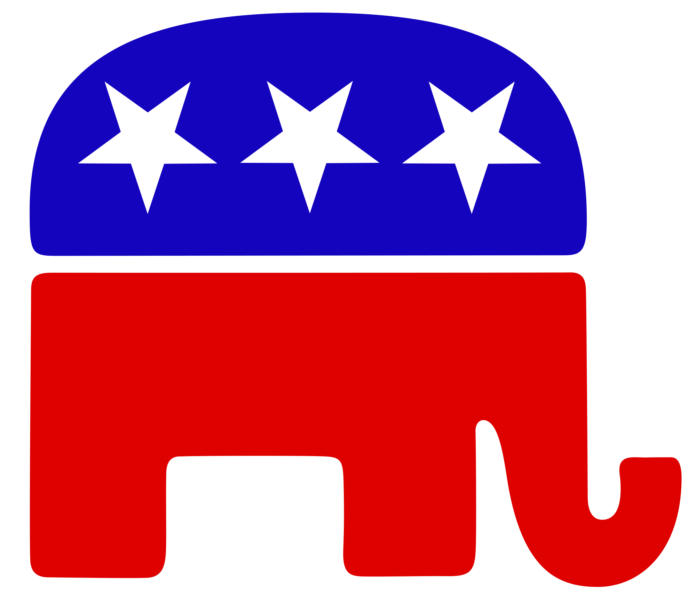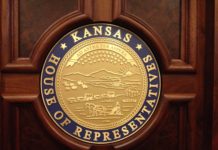The Kansas Republican Party delivered a reminder about its loyalty oath this week shortly after state Sen. Dennis Pyle revealed he was setting the stage to run for governor as an independent candidate.
Only hours after Pyle officially announced that he planned to run for governor, the party emailed the language of the loyalty oath to party officials, cautioning them about supporting candidates other than Republicans in an election.
The email puts party leaders and officials on notice that they should not be backing Pyle, who dropped his Republican Party affiliation last week before filing paperwork to appoint a treasurer to run for governor.
Pyle’s candidacy has stirred blowback from Republicans who want to see Republican Attorney General Derek Schmidt win back the governor’s office from Democratic incumbent Laura Kelly.
A staunch albeit combative conservative, Pyle could potentially siphon votes away from Schmidt in a race with Kelly. Pyle still needs to collect 5,000 signatures from qualified registered voters by Aug. 1 to get on the ballot.
“It’s just a reminder to people that if Pyle is not going to enter as a Republican that our bylaws prohibit anybody in a position of leadership endorsing a non-Republican or working with a non-Republican,” GOP Chairman Mike Kuckelman said in an interview.
Kuckelman said he wanted the notice sent out to make it clear that Republican support for Pyle – or anyone else not part of the GOP – is off limits.
“People can get confused. Pyle was at one point a Republican,” Kuckelman said.
“If people don’t think that issue through and if he were to approach a Republican and seek an endorsement, I just want to remind them that he’s not running as a Republican.”
Anyone in state Republican Party leadership or holding an official position is barred from supporting Pyle or anyone else who is not a member of the party, Kuckelman said.
The penalty would cost someone their right to vote at state Republican Party meetings.
“We can’t have someone voting on party business that’s not actually acting as a Republican,” he said.
Pyle criticized the party in response, calling it the “deep state.”
The party email, he said, “shows the deep state is really concerned about the fact that somebody is declaring their independence.”
“Th Republican party that I belonged to for most of my life always supported independence and free thinking,” Pyle said.
“People have the right to support and vote for who they choose. Obviously the party establishment elite think differently.”
Under Republican Party rules, county, district or state officers shall forfeit their official title and all associated rights if they donate, contribute or endorse a candidate other than the Republican nominee in a contested, partisan campaign for public office.
The idea of Republican loyalty oath has been around for years and first gained traction in 2007 when Kris Kobach chaired the state Republican Party.
It was always seen as a way of keeping moderate Republicans from helping Democrats because they disagree with the GOP’s conservative wing.
At that time, the state Republican Party started forming a loyalty committee so it could sanction officers who endorsed or contributed to Democrats.
Kobach and his supporters said at that time that the loyalty committee was an attempt to promote unity.
They said division within GOP ranks allowed Democrats to steal away moderate Republicans to help them elect Democrats such as former Gov. Kathleen Sebelius and former Attorney General Paul Morrison.
At that time, Kobach said the grounds for removing someone from office included publicly endorsing or contributing to a non-Republican running in Kansas.
“This rule will operate primarily as a deterrent,” Kobach told The Associated Press at the time.
“My anticipation is that once the rule is in effect, you won’t see too many elected party leaders engaging in this kind of behavior.”
















